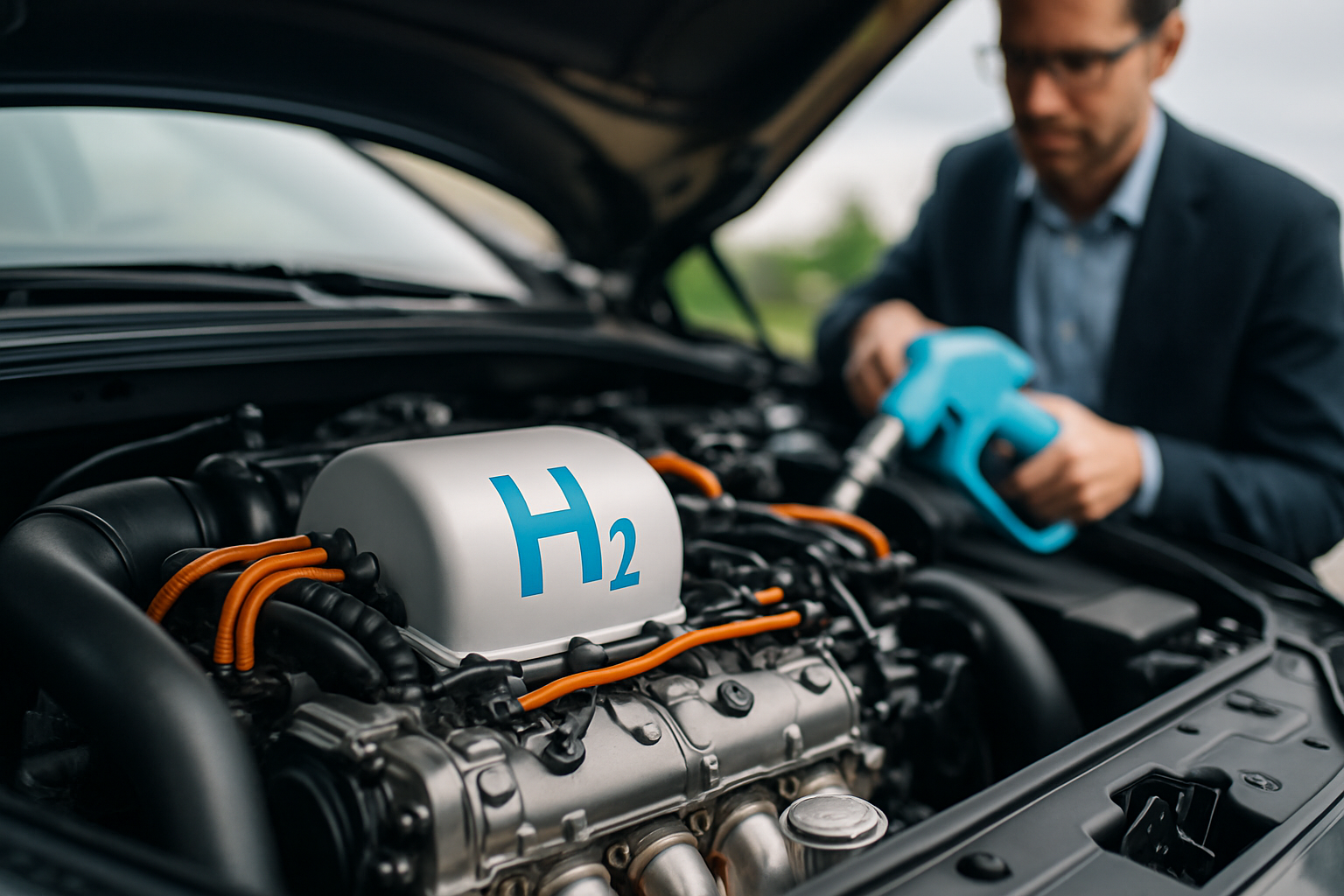Hydrogen Fuel Cell Vehicles: Pioneering the Future of Clean Mobility
In the ever-evolving landscape of automotive technology, hydrogen fuel cell vehicles (FCVs) are emerging as a promising alternative to traditional combustion engines. This groundbreaking propulsion system harnesses the power of hydrogen to create electricity, offering a zero-emission solution that could revolutionize the way we think about transportation. As the world grapples with climate change and the need for sustainable energy sources, FCVs present an intriguing possibility for eco-conscious drivers and forward-thinking manufacturers alike.

The protons pass through a specialized membrane, while the electrons are forced to travel through an external circuit, generating an electric current. On the other side of the membrane, oxygen from the air combines with the protons and electrons, forming water vapor. This continuous process produces a steady stream of electricity to power the vehicle’s electric motor, providing a driving experience similar to that of a battery-electric vehicle but with the added benefit of quick refueling times.
Infrastructure Challenges and Solutions
One of the primary hurdles facing widespread adoption of hydrogen FCVs is the lack of refueling infrastructure. Unlike the ubiquitous gas stations that dot our landscapes, hydrogen fueling stations are still relatively scarce. However, several countries and regions are making significant strides in expanding their hydrogen infrastructure networks.
Japan, for instance, has been at the forefront of hydrogen technology development and implementation. The country has set ambitious targets for hydrogen station deployment, aiming to have 900 stations operational by 2030. Similarly, California has been leading the charge in the United States, with plans to establish 200 hydrogen stations by 2025. These initiatives demonstrate a growing commitment to creating the necessary foundation for hydrogen-powered transportation.
Advantages Over Battery Electric Vehicles
While battery electric vehicles (BEVs) have gained significant traction in recent years, hydrogen FCVs offer several distinct advantages. Perhaps the most notable is the refueling time. Unlike BEVs, which can take hours to fully charge, hydrogen FCVs can be refueled in a matter of minutes, providing a familiar experience for drivers accustomed to traditional gas-powered vehicles.
Additionally, FCVs typically offer greater range than their battery-powered counterparts, with some models capable of traveling over 400 miles on a single tank of hydrogen. This extended range makes FCVs particularly attractive for long-distance travel and commercial applications where downtime for charging can be costly.
Environmental Impact and Sustainability
The environmental benefits of hydrogen FCVs are substantial, particularly when the hydrogen is produced using renewable energy sources. When powered by green hydrogen – hydrogen produced through electrolysis using renewable electricity – FCVs can offer a truly zero-emission transportation solution from well to wheel.
However, it’s important to note that the current hydrogen production landscape is dominated by methods that rely on fossil fuels, such as steam methane reforming. As the push for cleaner hydrogen production methods intensifies, the overall environmental impact of FCVs is expected to improve significantly. This transition to green hydrogen production will be crucial in realizing the full potential of hydrogen as a sustainable fuel source for transportation.
The Role of Hydrogen in Heavy-Duty Transportation
While passenger vehicles have been the primary focus of many discussions surrounding hydrogen FCVs, the technology shows particular promise in the realm of heavy-duty transportation. Long-haul trucking, buses, and even maritime applications stand to benefit greatly from the high energy density and quick refueling capabilities of hydrogen fuel cells.
Several major truck manufacturers have already begun developing and testing hydrogen-powered semi-trucks, with some models boasting ranges of up to 600 miles. These vehicles could play a crucial role in decarbonizing the logistics industry, which is responsible for a significant portion of global emissions. The ability to refuel quickly and cover long distances makes hydrogen an attractive option for fleet operators looking to reduce their carbon footprint without sacrificing operational efficiency.
The Road Ahead for Hydrogen Fuel Cell Vehicles
As we look to the future of transportation, hydrogen fuel cell vehicles represent a compelling option for achieving sustainable mobility. While challenges remain, particularly in terms of infrastructure development and green hydrogen production, the potential benefits of this technology are too significant to ignore.
The coming years will likely see increased collaboration between automakers, energy companies, and governments to overcome these hurdles and pave the way for wider adoption of hydrogen FCVs. As costs continue to decrease and efficiency improves, we may well find ourselves on the cusp of a hydrogen-powered revolution in transportation, offering a clean, efficient, and practical solution to our mobility needs in an increasingly carbon-conscious world.





